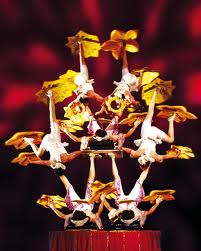Multiculturalism as a public policy
Updated on 05 April 2024

The Dutch government says it will abandon the long-standing model of multi-culturalism that has encouraged Muslim immigrants to create a parallel society within the Netherlands[1].
It is not my intention to discuss the specifics of the Netherlands case, but rather to reflect on multi-culturalism as public policy. For this we have a look back at our own history.
In pre-industrial societies[2] the extractive elites (warriors, priests, and often merchants) were content with providing some security at best, and using the extracted surplus for invidious aggression.

(Ernest GELLNER (1983): Nations and nationalism Cornell University Press, Ithaca; p. 9)
Below the elites laterally insulated communities coexisted, in cities or in the countryside – each running its own affairs the best they could, with little interference from above or their neighbors. Intercommunity relations were often tense – prejudice, suspicion, and violence chronically flared up.
These vertical structures replicated themselves over time: existence, I’d say subsistence, was their shared goal[3]. Dynasties might be replaced; vertical slivers might be cleaved and joined to other structures: nothing changed essentially, and life went on as before.
Then came the nation-state. At this level of generality, one can argue that it was based on the republican idea that “liberty depends on sharing in self-government”[4]. This is an active commitment to a political process and its outcome. “It requires a knowledge of public affairs and also a sense of belonging, a concern for the whole, a moral bond with the community whose fate is at stake.”
I find the following statement of libertarian Margaret Thatcher quite amazing: “And, you know, there is no such thing as society. There are individual men and women, and there are families. And no government can do anything except through people, and people must look to themselves first. It’s our duty to look after ourselves and then, also to look after our neighbour. People have got the entitlements too much in mind, without the obligations. There’s no such thing as entitlement, unless someone has first met an obligation.”[5] In this line of argument Robinson Crusoe lived in Freedom’s Wonderland, and in Thatcher’s world “multi-culturalism” would be de rigeur – all minorities “looking after themselves first” (though without handouts), with their own laws, and dress codes.
In a chemical compound atoms are not made the same – but in order for the product to remain stable, they have to “hold together”. Between medieval “multi-culturalism” and nationalist “acculturation” we need to chart a middle path – a path of will- and purposeful deliberation. Society holds together to the extent that it engages – both as process AND as outcome. There are no dispensations, though there obviously is respect for diversity, and understanding that it might be beneficial or necessary.
[1] Muslim immigration to the Netherlands can be traced back to the 1960s and 1970s, when a blue collar labor shortage prompted the Dutch government to conclude recruitment agreements with countries like Algeria, Morocco, Tunisia and Turkey. In the 1980s and 1990s, Muslims also arrived in the Netherlands as asylum seekers and refugees, mainly from Afghanistan, Bosnia, Iran, Iraq, Pakistan and Somalia.
There are now an estimated 1.2 million Muslims in the Netherlands, which is equivalent to about 6 percent of the country’s overall population. Moroccans and Turks comprise nearly two-thirds of all Muslims in the Netherlands. Most Muslims live in the four major cities of the country: Amsterdam, Rotterdam, The Hague and Utrecht.
A new integration bill, which Dutch Interior Minister Piet Hein Donner presented to parliament on June 16, reads:
“The government shares the social dissatisfaction over the multicultural society model and plans to shift priority to the values of the Dutch people. In the new integration system, the values of the Dutch society play a central role. With this change, the government steps away from the model of a multicultural society.
A more obligatory integration is justified because the government also demands that from its own citizens. It is necessary because otherwise the society gradually grows apart and eventually no one feels at home anymore in the Netherlands.”
The new integration policy will place more demands on immigrants:
- immigrants will be required to learn the Dutch language, and the government will take a tougher approach to immigrants who ignore Dutch values or disobey Dutch law;
- special subsidies for Muslim immigrants will be discontinued because, according to Donner; “It is not the government’s job to integrate immigrants”;
- forced marriages will be outlawed and tougher measures will be introduced against Muslim immigrants who lower their chances of employment by the way they dress. More specifically, the government will impose a ban on face-covering, Islamic burqas as of January 1, 2013.
[2] See Patricia CRONE (2003): Pre-industrial societies. Anatomy of the pre-modern world. Oneworld, Oxford.
[3] We hardly fathom how deeply engrained the “subsistence worldview” was then. Most states had sumptuary laws that limited conspicuous consumption to the elite, but the “subsistence ethic” was mainly enforced through religion. When tea, coffee, cocoa, and sugar arrived into Europe, for the first time we had “mass luxuries” -became available to both men and women, transforming people’s peoples’ attitudes. As the “cuppa” spread across Great Britain mentalities changed more deeply than through the learned discussion of Renaissance philosophers. See: Marcello CARMAGNANI (2010): Le isole del lusso. Prodotti esotici, nuovi consume e cultura economica europea, 1650 – 1800. UTET, Torino.
[4] Michael J. SANDEL (2005): Public philosophy. Essays on morality in politics. Harvard University Press, Cambridge; p. 10.
[5] Prime minister Margaret Thatcher, talking to Women’s Own magazine, October 31 1987 https://briandeer.com/social/thatcher-society.htm

Leave a Reply
Want to join the discussion?Feel free to contribute!